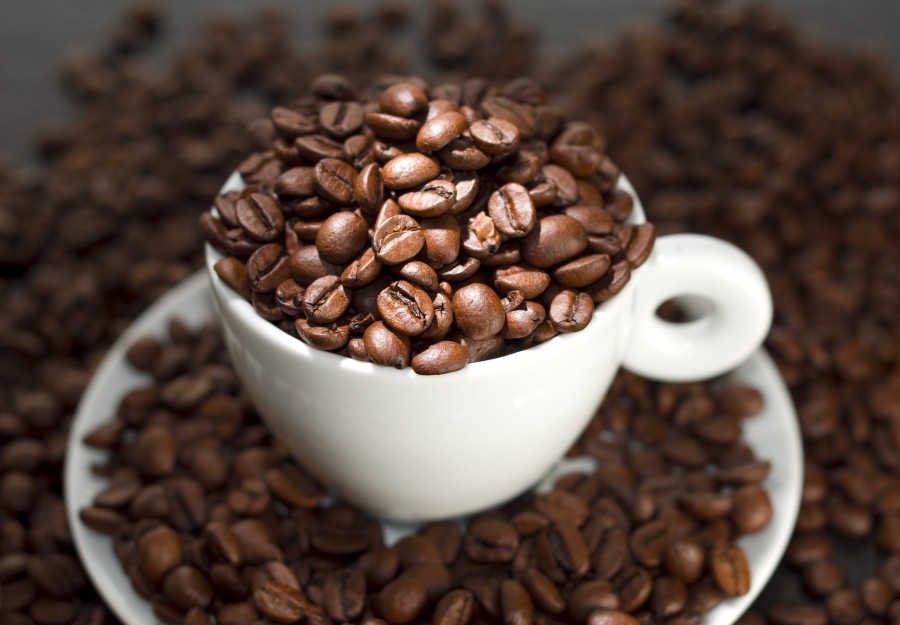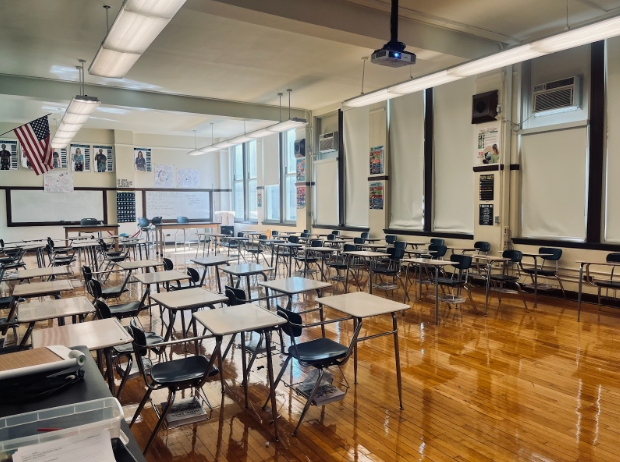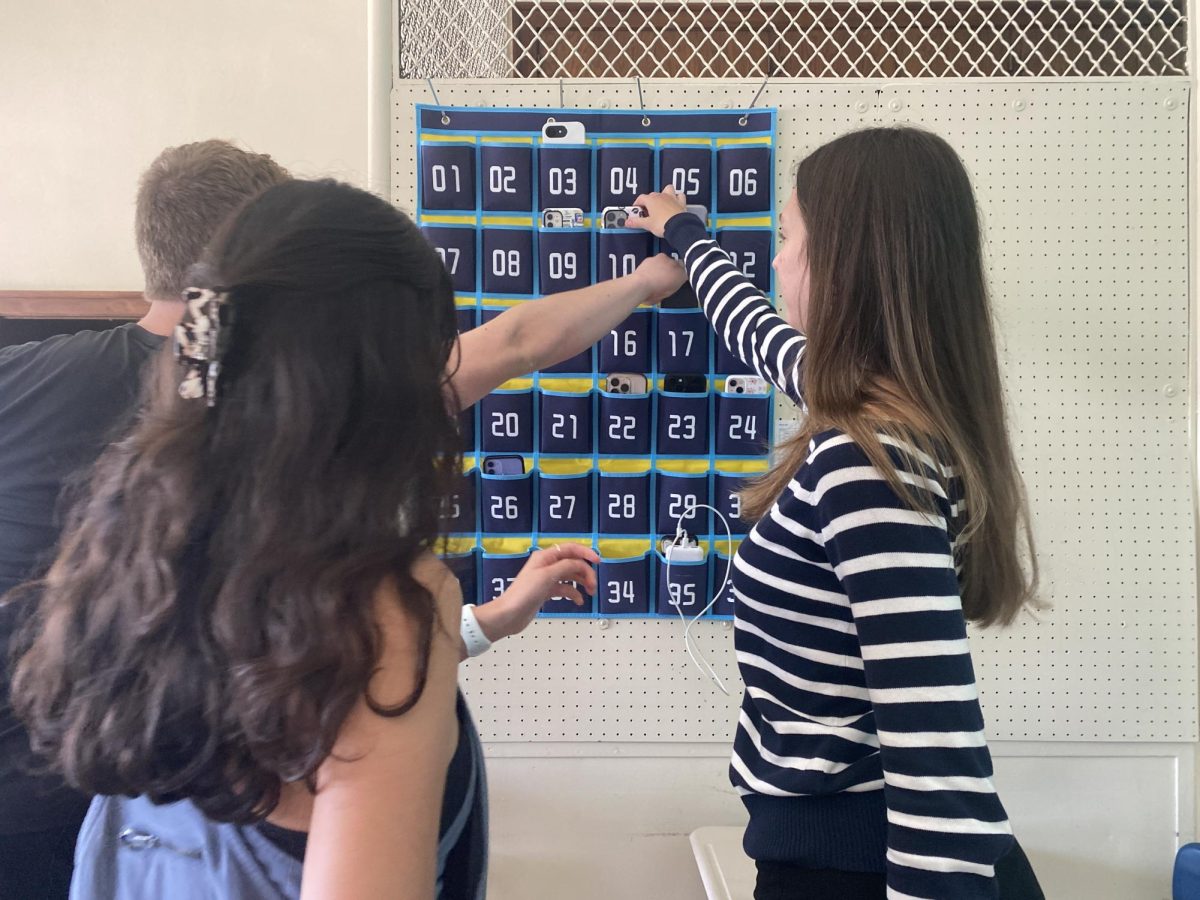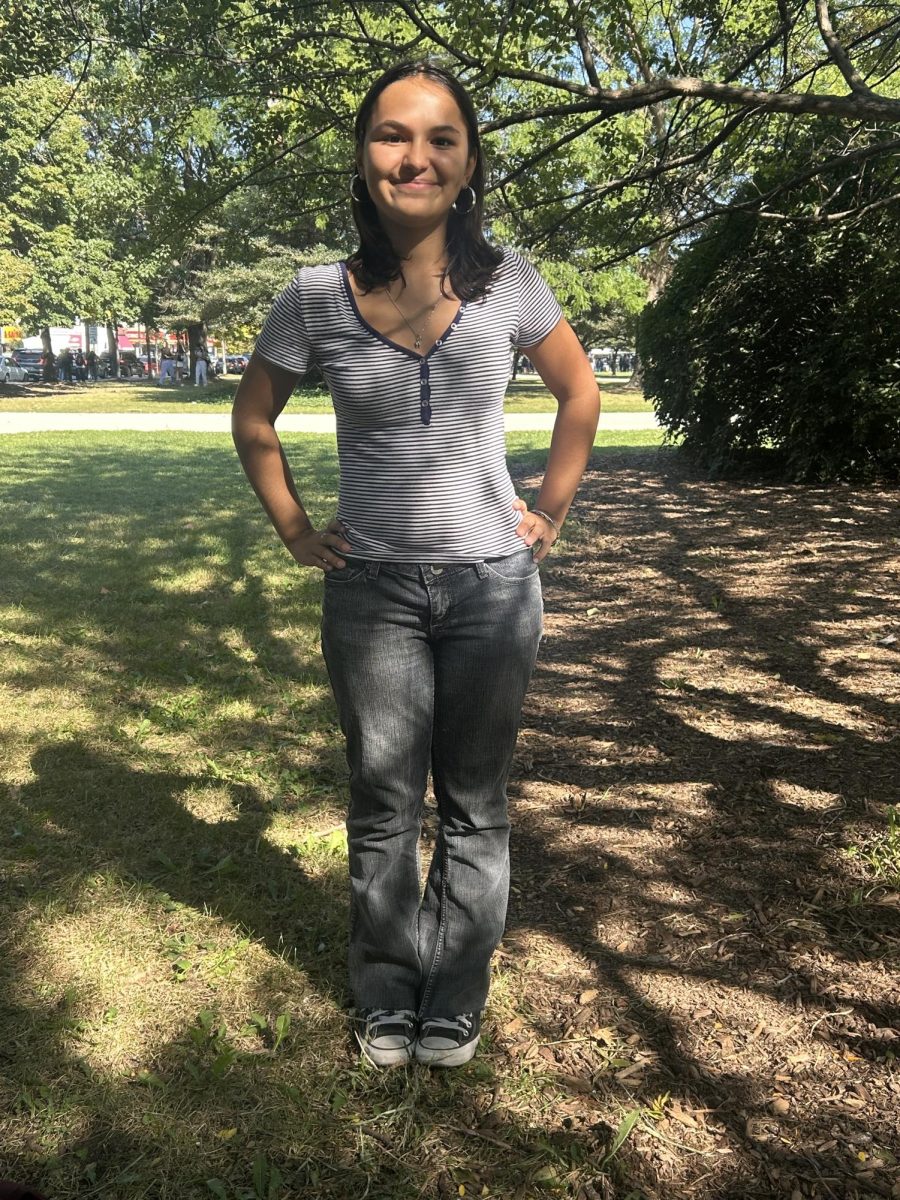By Claudia Maj
An addict at 17; it is easy to fall into temptation, but this is not just any addiction solved by rehab. This white powder, in its natural form, can be purchased all around us, legally. Its name is caffeine.
As an experiment for this story, Christina Pacheco, Div. 367, agreed to go a full day without drinking any coffee. Pacheco drinks coffee when she wakes up, when she is on the bus before school, at lunch, after school, and during dinner, totalling up to 5 cups per day. She admitted that deprived of caffeine she might not be able to last the day.
“A day without coffee is a nightmare,” Pacheco said. “I get drowsy, I can’t concentrate, my temper flares up. The need is always there, chewing away at me, until I give up. It’s like a drug. You always want more. You can stop it, but you don’t want to.”
The morning of Pacheco’s caffeine-free day started off with her eating breakfast for the first time this school year, as opposed to just drinking coffee as she usually does. She ate a banana with strawberry yogurt and a granola bar.
“Food actually kept me going,” she said.
Pacheco has P.E. second period, where she burned off her breakfast calories. Instead of getting a quick caffeine fix, she bought herself some water and traded her chocolate bar for a granola bar.
By fourth period she felt drowsy and started getting sleepy. She claims the worst part was when she realized she did not have any food to refuel. She asked her teacher to go to the bathroom and, once there, she jogged in circles until she felt awake.
“I think people in the stalls thought I was crazy, but oh well,” she said.
Lunch was the hardest part of the day for Pacheco. Coffee is available at many stores and restaurants close to Lane. She had difficulty resisting the temptation.
“I swear [the coffee vendors] were calling my name,” she joked.
Pacheco did not enter any stores where coffee was sold; instead she settled for Chinese food. Her final class of the day, physics, was a hard one to get through as well. Pacheco thinks she fell asleep but she is not sure.
“[The experiment] showed me that I don’t always have to rely on caffeine, I’m going to try to cut down on it,” she said.
Coffee has become a habit many students are not sure they can go without.
“Tired, dead, mad, angry,” were some of the words Daniel Gosiewski, Div. 385, used to describe how his day without coffee would be.
Samantha Sullivan, Div. 376, even encountered some bad luck over bad coffee.
“One day, my coffee tasted [really bad], and I ended up tripping over a cello and ended up in the emergency room,” she said.
Some may think it was just an accident, but Sullivan blames her bad coffee, which she still drank all morning until the incident.
Although to some it may taste good, coffee does have its health risks.
Science teacher, Ms. Finchum, is surprised to see how many students at Lane walk in holding large cups of coffee. She herself started drinking coffee at the age of 13. Finchum also agreed to spend a day without drinking coffee.
While conducting the experiment she felt worn out and her day seemed long, but it was not as bad as she thought it would be.
“If I had to stop drinking coffee, I could. But do I want to? No,” she said.
Withdrawal from caffeine can be difficult. Pacheco at one point in her life became addicted to an energy drink called Venom. She knew that the drink was bad for her so she decided to quit cold turkey.
“I stuck to water and juice and the first weeks were hell. I couldn’t sleep, my grades slipped, I was acting like a crazy lady,” she said. Avoiding caffeine entirely was a bad idea. She began to drink coffee. After her failure to quit, she stopped feeling the need to stop because she would not go through with it again.
Not all Lane students turn to coffee when in need of an energy boost. Kylie Carlson and Olivia Clafford Div. 752, both dislike coffee.
“Coffee tastes oldish to me. I relate it with old tea,” said Carlson who claims she could only drink coffee with a lot of cream and sugar. Her fellow classmate Clafford relates coffee to something else.
“[Coffee] tastes like liquor to me,” Clafford said.
Both girls prefer to drink Gatorade or juice to help keep them awake.
WGN News aired a medical watch update on caffeine in December.
“Emergency room visits have skyrocketed of people who either consume energy drinks alone or combined with alcohol, massive amounts of caffeine in energy drinks lead to heart complications, dizziness, and headaches,” the station reported.
To some, coffee is just a drink, to others it is the addicting substance that keeps them going. However health experts say caffeine and energy drinks do pose danger. In 2004, according to CBS News, researchers suggested that caffeine withdrawal should be included in the next edition of the Diagnostic and Statistical Manual of mental disorders.





